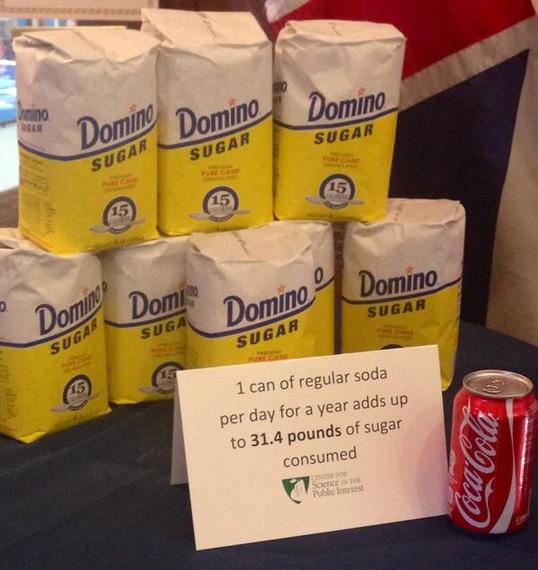
The SWEET Act is not the spoonful of sugar that will help the medicine go down for Big Soda but it is, indeed, the right prescription for the diseases brought on by excessive consumption of sugar drinks.
The Sugar Sweetened Beverages Tax Act would impose an excise tax of 1 cent per teaspoon of sugar or other caloric sweetener at the manufacturing level. It would dedicate the annual revenues, on the order of $10 billion, to the prevention and treatment of tooth decay, diabetes, obesity, and other diet-related diseases.
In fact, that is a modest down payment toward the human and economic costs brought on by the industry's relentless and greedy marketing of sugar drinks. For instance, Type 2 diabetes was once almost exclusively an adult disease but is now becoming a pediatric disease. Obesity and overweight, promoted in significant part by soft drinks, account for an estimated $190 billion in our national health care costs.
And much of that disease burden is borne by America's low income communities and communities of color on whom the industry has targeted a good chunk of its marketing. One study, for example, estimated marketing in 2004 aimed at Hispanics and African-Americans at $3.9 billion and $1.7 billion, respectively.
One can already hear the industry's talking points as their lobbyists fan out through the halls of the House and Senate office buildings: "The causes of obesity and diabetes are complex, and it's unfair to single out sugar drinks."
True enough about the complexity of diet-related diseases, but actually it's pretty simple math when it comes to the health impact of sugar drinks: The average 12-ounce soda contains around 10 teaspoons of sugar. According to the American Heart Association, the average woman should consume only six teaspoons of added sugar a day and the average man nine teaspoons.
The reality is that sugar drinks are nutritionally worthless and only add calories to our diet. When once they were considered as occasional treats for a celebration, the industry has spent billions of dollars in marketing and lower prices to make them Americans' default beverage. And the overwhelming body of scientific evidence shows that soft drinks are the only food or beverage that increases the risk of overweight and obesity, leading to increased risk of diabetes, cardiovascular disease, and many other health problems.
An excise tax is regressive, the industry lobbyists will argue.
This tax -- like those on tobacco and alcohol -- is intended to recapture the widespread social costs these products inflict. That is why it's so important that this legislation seeks to dedicate the funds to priority populations who are now bearing the disproportionate health impacts from soda-related diseases. It is by no means a perfect balance being struck, but it is a balance that is being attempted, totally unlike the industry's exploitative marketing practices.
When all else fails the industry will turn to the time-honored "job-killer" argument.
The bill doesn't keep the industry from producing and marketing healthy beverages. In fact, it encourages the production of healthier beverages by basing rates on the amount of sugar in drinks as opposed to taxing by volume regardless of sugar content. The industry's economic argument is actually a concession that its business model depends on duping the public as it has already done by responding to declines in soda consumption with "energy" drinks and the like.
The SWEET Act is bold public policy and a welcome reminder that big ideas have power and over time will have impact.
